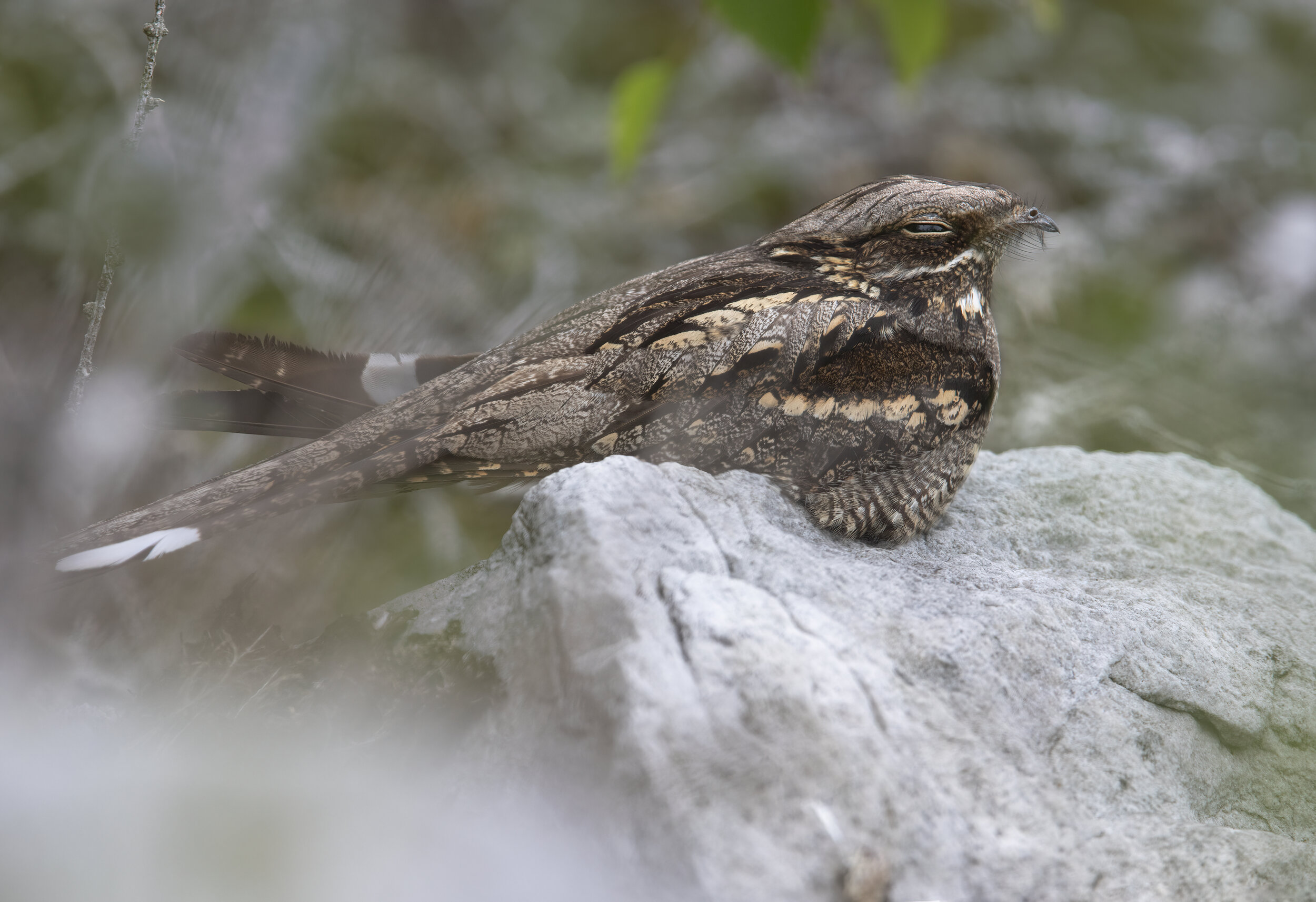Some good news, some bad news, such is the nature of nest monitoring. In this woodland I have 7 pairs, but I’ve only managed time to find 3 nests so far. 2 of these nests are doing great, both with two chicks and both getting bigger each day, but as the nest gets smell from droppings from both the parents and young, it starts to attract predators, and the worse happened for my 3rd pair that seemed to get their chicks to a decent age, but the nest was found empty, with just a few chick feathers that were broken off. I didn’t have a camera on this nest so it’s difficult to know what the cause was, but this pair failed their first clutch last year also and managed to start again with their second clutch fledging one chick. Below is a male that I’ve come to call Midnight, as he’s particularly dark compared to my other males. Males are usually darker than females, but this guy takes it to another level. He’s the male of the failed pair, so is now sticking close to the female again where-ever she may go, so that they can start over. He’s even roosting on Rocks which makes sense now the nights are getting cooler as that extra warmth sitting on a rock that’s been baking in the sun all day will most certainly give them an extra boost of energy at sundown.
I don’t usually photograph birds on the nest, but I've been getting requests to see the chicks on Facebook so here we go. There are two showing in the photo, but the second is much harder to spot. They’re just getting too big to stay underneath Mum, and it this time lines up perfectly with their adult plumage coming into play, so they are becoming less dependant on mothers superior camouflage.
We’re so lucky in Gwent to have such a variety of fauna and flora and I don’t appreciate it half as much as I should whilst I’m out and about. Usually too busy to stop and observe the ground, especially when you’re focuses on Nightjar, you get a little tunnel vision, but it’s surprising what you do find if you just set aside a bit of time. There are some species that you just need to make the time for, like the Scarce Blue-tailed Damselflies in upland Gwent ponds, if you don’t look, you won’t find them, but there are other species that you just need to get lucky with, and luck was on our side as a Silver-washed Fritillary was sapping moisture and minerals from a clay patch right next to the car along Albion road, pontypool.
Sound Recording
I’ll start with a mystery, and if you do have an idea of what this begging sound might be, please get in touch as I’ve suspected many things but cannot find any reference material that matches.
There were a few Woodcock roding so I thought it might be a begging chick but I’m honestly not convinced it’s even a bird at this rate. This is the first decent recording I’ve got of a roding Woodcock but I’ll try to improve on this next season as it’s a very cool sound.
The star of the show was of course this beautiful performance off this Male Nightjar that does have a very distinctive song, where the inhale section of the song, also described as the minor phrase, is quite low pitched in comparison to its major phrase, making him identifiable, even by ear, so long as you know what you’re listening out for.
Throughout the season I have been observing Goshawks nearby that have been taking food back and forth, so I suspected at the time they were nesting quite close but till now I’ve kept my distance as I’m not scheduled and I have no interest in disturbing them, but in the last few weeks the chicks have fledged and are venturing much further away from the nest site, so it was a matter of time walking the woodland paths that I eventually came within reach of my recording gear. This is why I love sound recording with a Telinga Dish, as unlike photography, you don’t actually need to see the bird to appreciate it, which allows you to appreciate wildlife from a much greater distance.
Nocmig
I’ll end with a few updates from my Nocmig recordings, which have just started to pick up again as birds are starting their autumn migration.
So far I’ve had Little Ringed Plover, Oystercatcher and a few morning extra’s in the form of Swift, Linnet and Raven, which I don’t usually get here.










